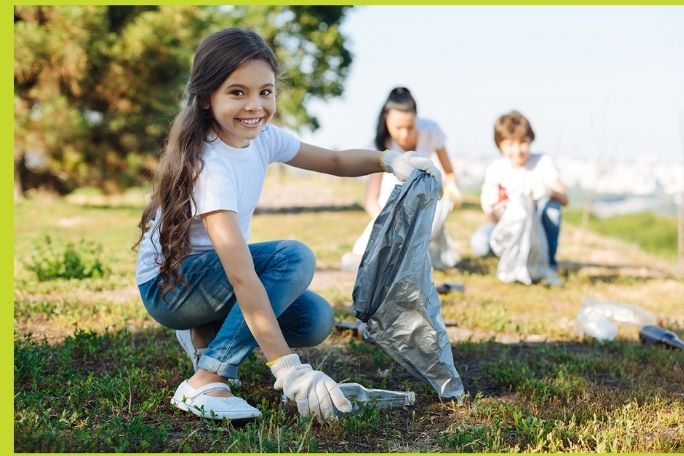Lesson summary
Students explore the idea of conscious consumption and how it relates to waste and recycling. They begin by looking at what is meant by conscious consumption. They then conduct an audit of the class lunchbox waste to find out what items are being thrown away and if any of these could be recycled. Students use the results of their audit to design a decision tree that can be used by families to make better choices relating to school lunch box packaging choices.
Learning intentions:
Students will...
- know what conscious consumption is
- know what a decision tree is.
Success criteria:
Students can...
- conduct an audit of school lunch waste and analyse the results
- use the results of their audit to support the communication of messages around recycling
- create a decision tree
Lesson guides and printables
Lesson details
Curriculum mapping
Australian Curriculum content descriptions:
Year 5 HASS:
- Influences on consumer choices and methods that can be used to help make informed personal consumer and financial choices (ACHASSK121)
- Work in groups to generate responses to issues and challenges (ACHASSI102)
- Reflect on learning to propose personal and/or collective action in response to an issue or challenge, and predict the probable effects (ACHASSI104)
Year 6 HASS:
- The effect that consumer and financial decisions can have on the individual, the broader community and the environment (ACHASSK150)
- Work in groups to generate responses to issues and challenges (ACHASSI130)
- Reflect on learning to propose personal and/or collective action in response to an issue or challenge, and predict the probable effects (ACHASSI132)
Year 5 Mathematics:
- Construct displays, including column graphs, dot plots and tables, appropriate for data type, with and without the use of digital technologies (ACMSP119)
Syllabus outcomes: GE3-4, MA3-18SP, MA3‑1WM, MA3‑3WM
General capabilities: Critical and Creative Thinking, Personal and Social Capability.
Cross-curriculum priority: Sustainability
Relevant parts of Year 5 HASS achievement standards: Students describe the significance of people and events/developments in bringing about change. They identify the causes and effects of change on particular communities and describe aspects of the past that have remained the same. Students distinguish between needs and wants and recognise that choices need to be made when allocating resources. They describe factors that influence their choices as consumers. Students identify individual strategies that can be used to make informed consumer and financial choices.
Relevant parts of Year 6 HASS achievement standards: Students describe the causes and effects of change on society. Students explain why it is important to be informed when making consumer and financial decisions. They identify the purpose of business and recognise the different ways that businesses choose to provide goods and services.
Relevant parts of Year 5 Mathematics achievement standards: Students pose questions to gather data, and construct data displays appropriate for the data
This lesson is part of the wider unit of work ACT CDS School Resources
Time required: 60 mins
Level of teacher scaffolding: Medium- facilitate class discussion and support with safe bin audit
Resources required
- Butchers paper/other materials for recording brainstorms
- Collection of waste from class bin (or photos of this waste)
- Device capable of presenting video to the class.
- Material for recording graphs – either digital tools or graph paper
Skills
This lesson is designed to build students’ competencies in the following skills:
- Critical thinking
- Enterprise
- Initiative
Additional info
The ACT Container Deposit Scheme (ACT CDS) was introduced by the ACT Government in 2018 as a litter reduction initiative. Participants collect and return their eligible drink containers at an ACT CDS return point for a 10 cent refund on each. For further information about the ACT CDS, please visit actcds.com.au
This lesson plan has been developed by Cool Australia, in collaboration with Exchange for Change, the scheme coordinator for the ACT CDS, as part of a suite of curriculum-linked resources for teachers that support schools’ participation in the scheme and enable teachers to discuss the environmental benefits of the scheme as part of their sustainability lessons.


Welcome back!
Don't have an account yet?
Log in with:
By signing up to Cool.org you consent and agree to Cool's privacy policy to
store, manage and process your personal information. To read more, please see
our privacy policy here(Opens in new tab).
Create your free Cool.org account.
Many of our resources are free, with an option to upgrade to Cool+ for premium content.
Already have an account?
Sign up with:
By signing up to Cool.org you consent and agree to Cool's privacy policy to
store, manage and process your personal information. To read more, please see
our privacy policy here(Opens in new tab).